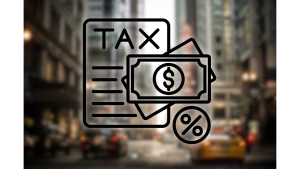What Recent Tax Changes Mean for Homeowners in Chicago
If you own property in Chicago—or plan to—your bottom line could be directly affected by recent updates to tax laws and assessments.
From changes in property tax rates to new deductions and exemptions, staying informed isn’t just helpful—it’s essential. The last thing you want is to be surprised by a bigger tax bill or to miss out on savings you’re entitled to.
Here’s a breakdown of what’s changed, what it means for your wallet, and how to make sure you’re not overpaying.
1. Property Tax Assessments Are Rising in Many Neighborhoods
Cook County reassesses property values on a rotating basis, and recent revaluations have led to significant increases in assessed home values—especially in rapidly developing areas.

Higher assessments don’t always mean your bill goes up—but they do increase your share of the tax burden.
2. Exemptions and Appeals Still Matter (More Than Ever)
The Homeowner Exemption, Senior Freeze, and other tax relief programs can significantly reduce your bill—but many homeowners either don’t apply or forget to renew them.

If your assessment seems too high, you have the right to appeal it with the Assessor’s Office or the Board of Review.
3. Transfer Tax Adjustments Could Affect Sellers
If you’re planning to sell your home soon, be aware of proposed or passed changes to Chicago’s Real Estate Transfer Tax, which is paid at closing. Some initiatives aim to increase this rate on high-value sales to fund affordable housing.

Even small tax shifts can impact seller proceeds and final net profit.
4. Potential SALT Deduction Adjustments
For federal taxes, the cap on State and Local Tax (SALT) deductions has been a hot topic. Changes at the federal level could increase or reduce what you can deduct based on local property and income taxes.

Talk to a CPA or tax advisor to understand how Chicago’s local taxes affect your federal return.
5. Investment and Rental Owners May See Bigger Shifts
If you own multi-family units, short-term rentals, or investment properties, keep an eye on policy shifts related to rental income, depreciation, and capital gains.

Regulatory changes—both local and federal—can affect profitability in ways many landlords overlook.
Bottom Line: Tax Changes Can Add Up Fast
As a homeowner in Chicago, it pays to stay in the know. Whether you’re planning to buy, sell, appeal an assessment, or claim an exemption, understanding your tax picture could save you hundreds—or even thousands—each year.
Not sure how these changes impact your property? Let’s connect. We’ll walk you through what’s new and help you navigate your options with confidence.




